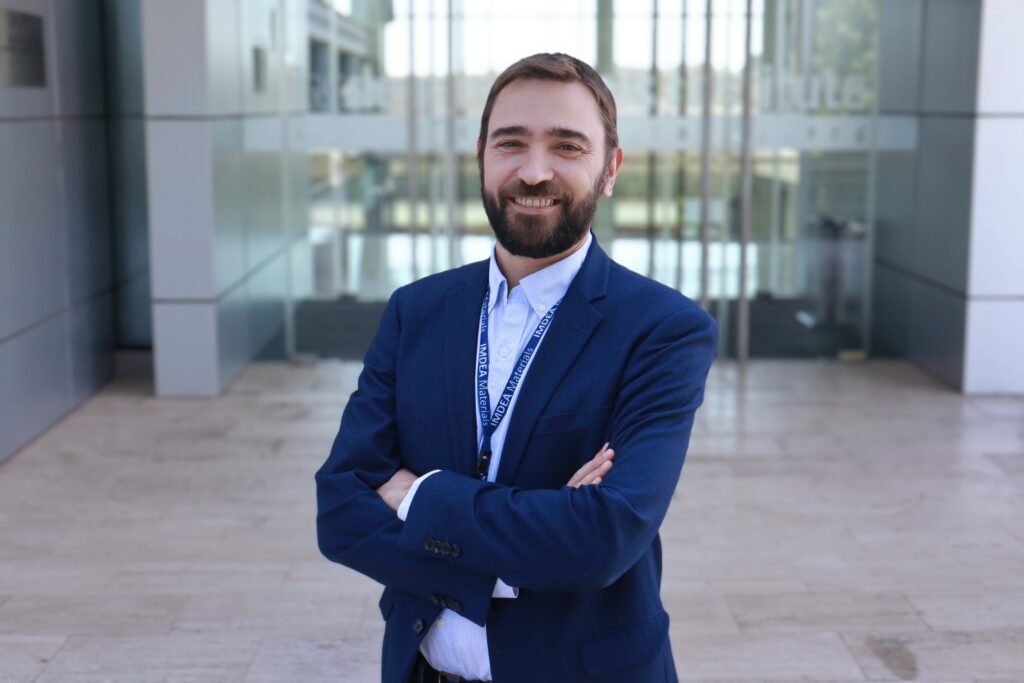Over the course of nearly two decades, Prof. Jon Molina has seen IMDEA Materials Institute grow from little more than a “bold vision” into a world-leading materials science research centre.
Yet, having come so far already, from being that vision in 2007, to gather more than 130 researchers from 26 countries today, he knows the journey is far from over.
“To put it boldly, we’re already playing in the Champions League of international research,” he asserts. “But we can’t get complacent.”
“When it comes to making an impact, whether that is generating knowledge, contributing to economic growth, or developing innovative technologies, size really does matter. To reach the level of institutions like MIT, KIT (Karlsruhe Institute of Technology), or the Max Planck Institutes, to name a few, we need to grow”.
“To achieve that, we are already doubling our investment in terms of attracting competitive funding. However, if we measure our impact in terms of technology transfer, spin-offs, and training new researchers, we could realistically multiply the impact generated by that investment tenfold,” he added.

Recently appointed as IMDEA Materials’ new Director, Prof. Molina is already looking to put his stamp on the Institute’s future.
Following in the footsteps of Profs. José Manuel Torralba (2021-2025), Ignacio Romero (2017-20221) and Javier LLorca (2007-2017), Prof. Molina is IMDEA Materials’ fourth Director since the Institute’s founding.
One of the most pressing challenges currently facing the Institute is securing the necessary resources, both in terms of infrastructure and funding, to sustain its growth and maintain its position as an international leader in materials science and technology.
The Institute recently expanded to a second building to host research related to its accelerated materials discovery, catalysis and energy materials, and high-performance polymers and fire retardants programmes.
“Of course, any growth will require more facilities given that our current site has reached saturation already, as well as further investment from the Community of Madrid,” says Prof. Molina. “But I firmly believe it’s an investment that will pay off in the long run.”
Prof. Jon M. Molina Aldareguía joined IMDEA Materials Institute in 2008, having previously served as a staff researcher at the Centre for Technical Studies and Research of Gipuzkoa (CEIT), and as an adjunct professor at the University of Navarra’s TECNUN School of Engineering.
During the past 17 years he has led the IMDEA Materials’ Micro- and Nanomechanics research group, publishing more than 190 articles in peer-reviewed international journals, which have received more than 6000 citations. He is also currently a Full Professor in Additive Manufacturing at the Technical University of Madrid, a position he has held since 2021.
He was previously an adjunct professor at the Carlos III University of Madrid from 2009-2021.
Regarding the Institute’s short and long-term research focus, Prof. Molina highlighted IMDEA Materials’ current efforts into making manufacturing more sustainable, developing materials for improved battery and hydrogen technologies, and advancing recycling towards the objectives of the circular economy.
He also pointed to the Institute’s work into creating smart, bioabsorbable implants that improve patient quality of life without the need for follow-up surgery.
“All of this is grounded in a deep understanding of materials, right down to the atomic scale,” he said.
“We combine physics-based models with cutting-edge tools like artificial intelligence and machine learning to develop materials that perform in real-world conditions. In short, we aim to play a key role in enabling more sustainable solutions for transportation, energy, industry, and healthcare.”
